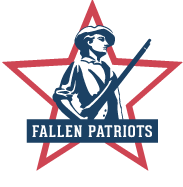David Kim (MBA 1994) is on a mission to find every military child who has lost a parent in the line of duty—and fund their college education.
In 1989, Sergeant William Delaney Gibbs was in Panama participating in Operation Just Cause, set to remove military dictator Manuel Noriega from power. He was with the Seventh Infantry Division and, during combat five days before the Christmas holiday, he was killed. He was 22 years old and looking forward to becoming a dad to a baby girl that March.
“That was a tough one for all of us, just thinking about what was going to happen to that little girl and who was going to take care of her,” says David Kim (MBA 1994), a graduate of the US Military Academy at West Point who was also a part of that unit.
Gibbs and the family he left behind never strayed far from Kim’s mind as he returned home and pursued a career in private equity, first as principal at Butler Capital in New York and later as global co-head of investor relations with Apax Partners. As he and his wife, Cynthia, began to move through their lives, having children of their own, he continued to think of Gibbs’s daughter and couldn’t shake the feeling that he had to do something for children like her—the sons and daughters of moms and dads who lost their lives on duty in the military.
The idea came to him on a hike with Scott Roth (MBA 1994) in the Black Hills of South Dakota as the pair discussed ways to help. What Kim wanted to do was build a foundation that would aid in funding the college educations of military children who had lost a parent in the line of duty. He and Roth took the idea to HBS faculty member Hank Reiling, who connected them with student interns to assist in determining the idea’s viability. Finally, Kim went home and pitched the idea to Cynthia, who came from a military family. Together, the Kims and Roth each invested $10,000 of their own money in 2002 to create the Children of Fallen Patriots Foundation, a nonprofit that provides scholarships and educational counseling to military children who lost a parent in the line of duty. What started with the couple grew to five staffers working out of the couple’s home. Today, the organization occupies an office space in Dulles, Va., with 17 staff members—seven of whom earned their degrees with the help of the 501(c)(3)’s funds.
“People love the military,” says Kim. “A lot of times they don’t know how to support the military, because they haven’t been in the military themselves. They may not even know anyone who served—less than one percent of the population serves.” So the Children of Fallen Patriots began to show the public how to support military families and the children who are left behind when parents are killed in combat, in training, or by suicide after war experiences. “When you show donors the need, and make that connection, it’s very powerful,” says Kim. “Then we just have to get out of the way.”
Through the Children of Fallen Patriots, Kim’s hope is to bring awareness to the needs of families, 55 percent of which are left to raise an average of two children on less than $55,000 a year. Too often, says Kim, the public assumes that the government assists them. And it does, to an extent. “There are two government programs that are designed to aid them,” says Kim, “but that aid doesn’t cover the full cost of college. And it leaves a gap of about $8,000 a year—that’s $32,000 for one student, for four years.”
To date, Children of Fallen Patriots has provided $33 million in support to 1,600 students. Kim wants to eventually reach all students who have been left behind by troops killed in the line of duty, which research—conducted by the Lucas Group on behalf of Children of Fallen Patriots—estimates to be some 20,000 dependents over the past 35 years. With those kinds of numbers, Children of Fallen Patriots figures that, after government help, the gap is half a billion dollars. “So that’s the total we’re going after,” Kim says.
Through fundraising with individuals and large corporate partners like Citigroup, PepsiCo, Credit Suisse, RBC, Vineyard Vines, and IHOP, through grants like the $15 million they received from the A. James and Alice B. Clark Foundation, and through partnerships with Veterans Affairs, Children of Fallen Patriots continues to see increases in its own gifts to families and in the number of people the organization is able to find and assist.
The initial $20,000 investment now allows the Kims, 17 years later, to see how the Children of Fallen Patriots has made an impact on families, and sometimes they get to see it firsthand. Kim thinks of Jervon Lemon, a scholarship administrator on his team. After her father, Sergeant Jerome Lemon, was killed in Iraq in 2004, the nonprofit stepped in to help fund Jervon’s college education. Today, she speaks to the kids who are just like her. “So she’s on the phone with her peers, helping them connect with our aid,” says Kim. “That kind of personal support is a big part of our mission.”
Seven of the organization’s current employees have benefited as students, just like Lemon. They are now in a unique position, observes Kim, to provide not only financial support but also offer emotional support and mentorship like no one else can because, he says, they know exactly what it feels like to lose a parent.

